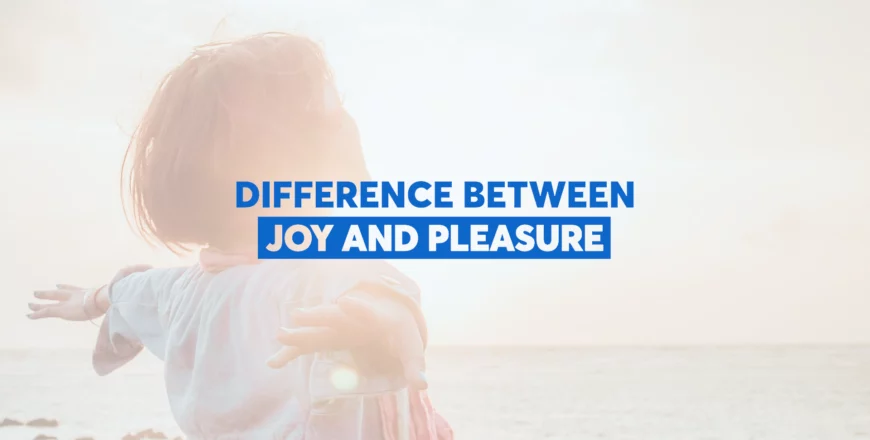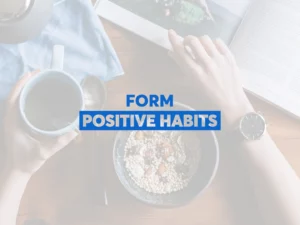
Course 20: The difference between joy & pleasure
- Description
- Curriculum
- FAQ
- Reviews

Course Description (What the course is about)
In this enlightening course, we will delve into the often misunderstood difference between joy and pleasure. Through engaging lessons, reflective exercises, and insights, you will gain a deeper understanding of these complex emotions. By the end of the course, you will be equipped to make intentional choices that lead to a more authentic and joyful life.
Course Outcomes (What you’ll learn)
By the end of this course, members will have:
- Differentiate between joy and pleasure and understand their unique characteristics.
- Identify the psychological and physiological aspects underlying joy and pleasure.
- Reflect on personal experiences to recognize moments of true joy and transient pleasures.
- Apply their newfound knowledge to make informed decisions that align with long-term well-being.
- Cultivate a deeper appreciation for meaningful and sustainable sources of happiness.
-
1Course 20: Difference between joy and pleasure - Introduction
-
2Lesson 1: Differentiate between joy and pleasure and understand their unique characteristics
-
3Lesson 1: Differentiate between joy and pleasure and understand their unique characteristics Quiz
-
4Lesson 2: Identifying Psychological and Physiological Aspects of Joy and Pleasure
-
5Lesson 2: Identifying Psychological and Physiological Aspects of Joy and Pleasure Quiz
-
6Lesson 3: Reflecting on Personal Experiences: Differentiating True Joy and Transient Pleasures
-
7Lesson 3: Reflecting on Personal Experiences: Differentiating True Joy and Transient Pleasures Quiz
-
8Lesson 4: Applying Newfound Knowledge for Informed Decisions and Long-Term Well-Being
-
9Lesson 4: Applying Newfound Knowledge for Informed Decisions and Long-Term Well-Being Quiz
-
10Lesson 5: Cultivating a Deeper Appreciation for Meaningful and Sustainable Happiness
-
11Lesson 5: Cultivating a Deeper Appreciation for Meaningful and Sustainable Happiness Quiz
What is the main difference between joy and pleasure?
Joy and pleasure are distinct emotional experiences. Joy is a deep and lasting sense of contentment that comes from within and is often associated with meaningful connections and accomplishments. Pleasure, on the other hand, is a more immediate and transient sensation of enjoyment often derived from external stimuli.
Can pleasure lead to long-term happiness?
While pleasure can bring temporary enjoyment, it tends to be short-lived and can contribute to the "hedonic treadmill," where people constantly seek new sources of pleasure without achieving lasting happiness. Long-term happiness is often more associated with cultivating inner qualities and meaningful experiences that bring joy.
Is joy always positive and pleasure always negative?
Both joy and pleasure can be positive experiences, but their nature and impact can differ. Joy is generally considered a positive emotion because it contributes to a sense of fulfillment and well-being. Pleasure can also be positive, but relying solely on external sources of pleasure without considering long-term well-being can lead to negative consequences.
Can joy be experienced even during challenging times?
Yes, joy can be experienced even during challenging times. Joy often arises from a sense of purpose, meaningful relationships, and inner contentment, which can provide emotional strength and resilience in the face of difficulties.
Are joy and pleasure mutually exclusive?
Joy and pleasure are not mutually exclusive; they can coexist and even enhance each other. The key is to recognize when you're experiencing genuine joy and to balance immediate pleasures with choices that contribute to your long-term well-being and happiness.
How can I differentiate between joy and momentary pleasure in my own life?
Reflect on your emotional experiences and their duration. Joy tends to be deeper and more sustained, often arising from accomplishments, meaningful connections, or personal growth. Momentary pleasure, on the other hand, is often linked to immediate sensory experiences and is fleeting.
Can pursuing pleasure ever lead to joy?
Pursuing certain pleasures that align with your values and enhance your overall well-being can indirectly contribute to joy. For example, engaging in hobbies you're passionate about or spending quality time with loved ones can bring both pleasure and a sense of lasting joy.
How can I incorporate both joy and pleasure into my life?
Strive for balance by recognizing the moments of joy that come from meaningful experiences and inner contentment. While enjoying simple pleasures is important, also make intentional choices that align with your values and contribute to your long-term well-being and fulfillment.
Can joy and pleasure vary from person to person?
Yes, joy and pleasure are subjective experiences that can vary greatly from person to person. What brings joy and pleasure to one individual might differ for another based on their values, interests, and life circumstances.
Is it possible to experience joy without any external factors?
Yes, joy can be experienced independently of external factors. It often arises from a deep sense of contentment, meaningful connections, and a sense of purpose that comes from within rather than being solely dependent on external circumstances.
Please, login to leave a review








